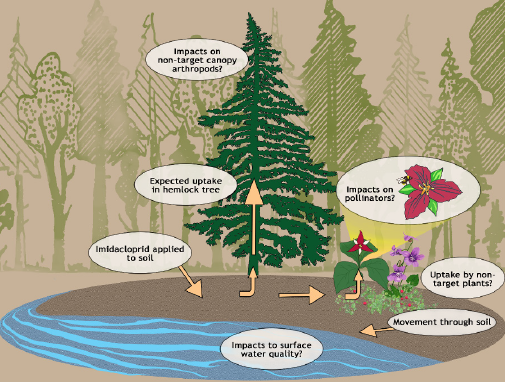OVERVIEW:
Managing hemlock woolly adelgid (HWA) (Adelges tsugae) (Figure
1) can involve use of insecticides. When it does, the non-target impacts
(negative effects to other organisms) need to be thoroughly considered
and weighed against the environmental cost of inaction or alternative
management approaches. Insecticides applied for HWA management
are used for conservation purposes, which may seem counterintuitive.
However, hemlocks are a key forest species, and so their loss can result in
severe ecological consequences.

To justify insecticide use against HWA,nwe have to ask: What are the possible negative consequences of using insecticides in the forest? We must consider these trade-offs in hemlock management. It is important to remember that there will be trade-offs in any kind of resource management discussion, even if it may not initially seem apparent. The negative environmental consequences of hemlock mortality must be weighed against the known consequences of insecticide use to preserve hemlocks.
Read the rest of this article in the attacked pdf…
Comments are closed